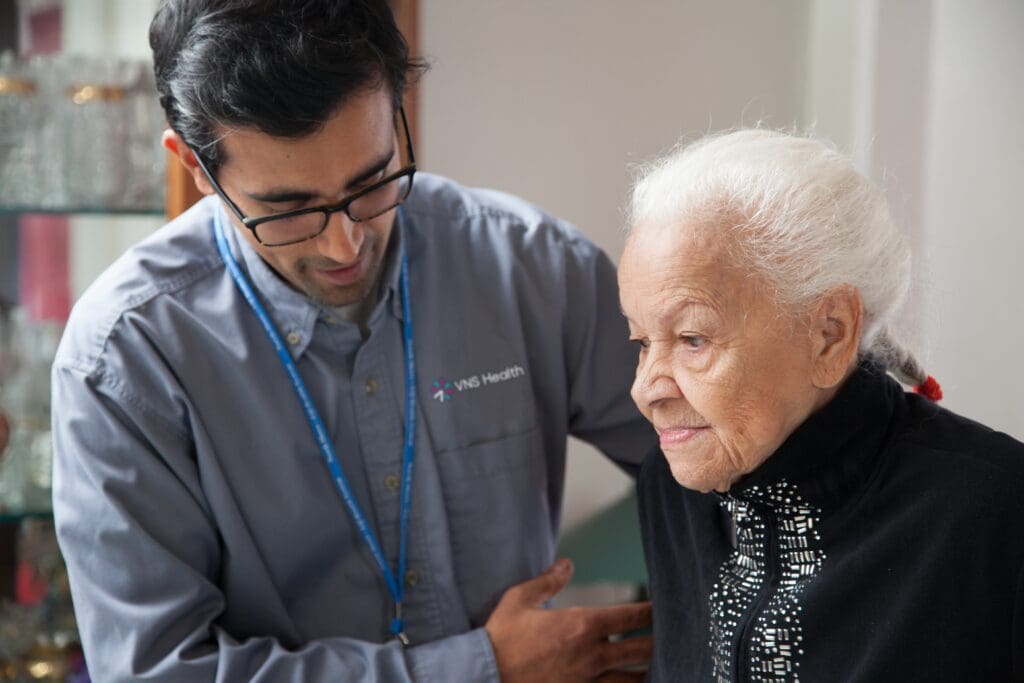Extraordinary Memory Care Charlotte: Strategies for Involving and Sustaining Residents
Extraordinary Memory Care Charlotte: Strategies for Involving and Sustaining Residents
Blog Article
How to Give Customized and purposeful Dementia Treatment
The provision of significant and personalized mental deterioration treatment needs a nuanced understanding of each person's distinct history and preferences. Care strategies must be tailored to involve the person in means that reverberate with their previous experiences, therefore promoting emotional links and improving overall wellness.
Recognizing Mental Deterioration Individuality

Treatment providers should evaluate cognitive capabilities, emotions, and behavioral patterns to produce personalized care strategies. This might include adapting interaction designs, utilizing acquainted regimens, and utilizing meaningful tasks that reverberate with the person's past experiences. Engaging a person with a passion for songs via musical activities might evoke positive memories and improve psychological wellness.
Moreover, recognizing uniqueness promotes a compassionate technique that values the dignity and autonomy of those living with mental deterioration. It encourages caretakers to listen actively, observe behavioral cues, and stay adaptable in their caregiving methods (charlotte care home). By prioritizing uniqueness, caretakers can not only boost the high quality of life for those with mental deterioration yet likewise build an extra extensive understanding of their distinct point of views, inevitably leading to much more efficient and understanding treatment
Structure Trust Fund and Rapport
Establishing depend on and relationship is fundamental in dementia treatment, as it develops a encouraging and safe atmosphere for people impacted by the condition. Building these connections calls for regular, compassionate communications that focus on the requirements and feelings of the individual. Caregivers need to come close to interactions with compassion, recognizing the one-of-a-kind challenges encountered by those with dementia, consisting of amnesia, complication, and emotional distress.
Reliable interaction is vital in this process. Caregivers should use clear, easy language and non-verbal signs to convey understanding and assistance. Energetic paying attention shows regard and recognition, enabling individuals to express themselves without worry of judgment. Furthermore, maintaining a tranquil temperament can assist ease anxiety, promoting a complacency.
Establishing a regimen can likewise improve depend on. Knowledge with day-to-day activities and caretakers advertises a feeling of security, enabling individuals to really feel more secure. It is vital to engage with people on a personal level, putting in the time to discover regarding their life history, choices, and interests. By doing so, caretakers enhance the individual's identity, promoting self-respect and respect, ultimately bring about more powerful, more significant relationships in the context of dementia care.
Tailoring Tasks and Engagement
Involving individuals with dementia with customized activities can significantly boost their lifestyle and promote a much deeper connection in between caretakers and those in their treatment. Personalization is necessary, as it acknowledges the special histories, rate of interests, and abilities of each individual. Tasks should be designed to promote cognitive features, advertise physical movement, and encourage social communication, all while continuing to be pleasurable and meeting.
To tailor activities efficiently, it is critical to assess the individual's choices and cognitive abilities. Some might find joy in horticulture, while others could value music or art. Basic, acquainted tasks can evoke positive memories and provide a feeling of success. Furthermore, incorporating aspects of routine can offer comfort and stability, check over here enabling individuals to engage with tasks a lot more confidently.
Caretakers can enhance engagement by taking part together with the individuals, cultivating an interactive and helpful setting. It is likewise important to stay flexible and flexible, readjusting activities as required based on the person's power levels and mood. Ultimately, significant involvement via customized activities not just boosts individuals with dementia but additionally improves the caregiver relationship, promoting shared satisfaction and understanding.
Effective Interaction Methods
Efficient communication is crucial in dementia care, as it promotes a sense of link and understanding in between individuals and caregivers experiencing cognitive decline. Employing reliable communication techniques can considerably enhance the quality of communications and minimize irritation for both events.
First of all, utilizing basic, clear language is necessary. Short sentences and familiar words aid individuals comprehend and react much better. Furthermore, preserving a calmness and positive tone can produce a reassuring setting, which is critical for individuals that may feel overwhelmed or distressed.
Non-verbal communication plays a considerable role as well. Caregivers should take notice of body movement, face expressions, and motions, as these cues can often share even more than words - charlotte care home. Developing eye contact and making use of mild touch can additionally share and reinforce links empathy
Energetic listening is another read this key part. Caregivers must listen, permitting individuals to express themselves completely, even if their speech is fragmented or uncertain. This reveals respect and urges extra open interaction.
Last but not least, validating sensations and experiences is important. Recognizing emotions, regardless of their basis in truth, can offer comfort and reinforce the caregiver-individual relationship, promoting an extra supportive environment.
Sustaining Family Members Participation
Family involvement plays a considerable function in the general treatment and assistance of individuals with dementia. Involving household members creates a collective setting that enhances the quality of care, fosters psychological connections, and ensures that the unique requirements of the person are fulfilled. Household members often have indispensable insights right into the individual's background, preferences, and habits, which can be critical in establishing personalized treatment strategies.

Furthermore, member of the family can be motivated to join daily treatment activities, such as participating in significant conversations or assisting with acquainted routines. This not only helps suffer the individual's sense of identity however additionally enhances familial bonds. Eventually, by fostering a comprehensive method that values family members contributions, care suppliers can boost the total experience for both people with dementia and their loved ones.
Verdict
To conclude, supplying purposeful and customized mental deterioration treatment necessitates a thorough understanding of each person's unique history and preferences. Developing trust fund and relationship with thoughtful interactions is essential for developing a risk-free setting. Tailoring tasks to resonate with personal passions improves Homepage emotional well-being and promotes dignity. Efficient communication strategies better support this process, while actively including household participants enriches the caregiving experience and cultivates much deeper links. Jointly, these approaches contribute to improved high quality of life for people with dementia.
The stipulation of customized and meaningful mental deterioration care needs a nuanced understanding of each person's distinct history and preferences. By doing so, caregivers reinforce the person's identity, promoting dignity and regard, inevitably leading to more powerful, a lot more significant partnerships in the context of dementia treatment.
Engaging individuals with dementia with customized activities can considerably improve their quality of life and foster a much deeper connection in between caregivers and those in their care.Family involvement plays a substantial function in the total care and support of individuals with mental deterioration. Ultimately, by cultivating a comprehensive strategy that values household payments, treatment service providers can enhance the general experience for both people with mental deterioration and their liked ones.
Report this page